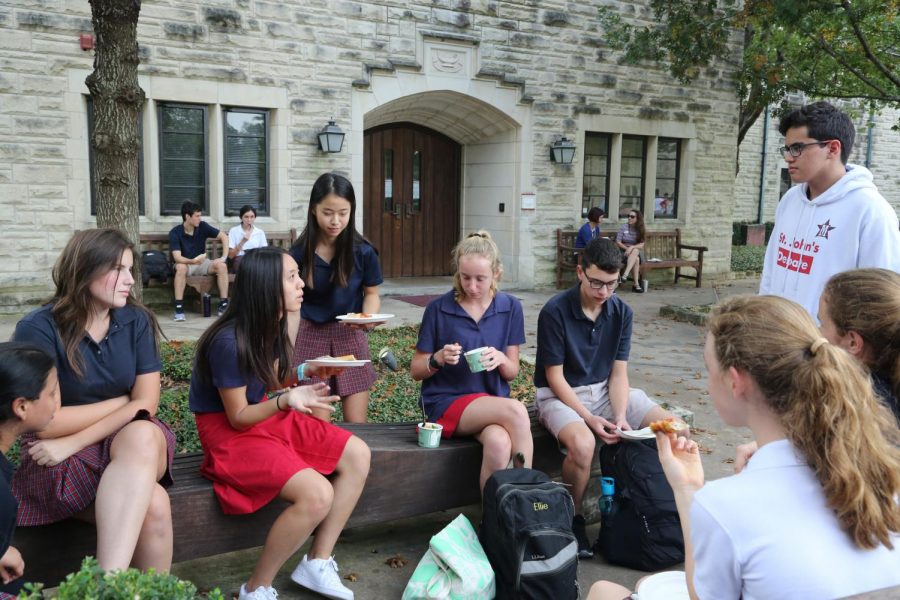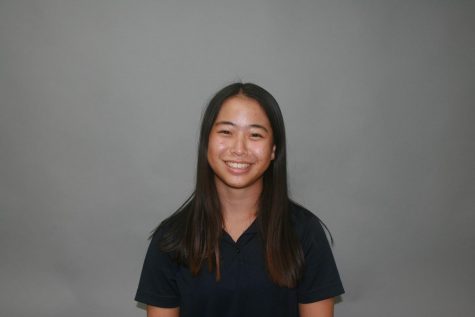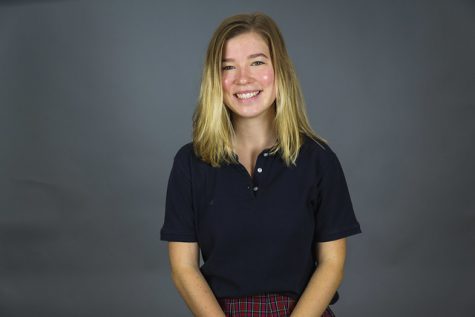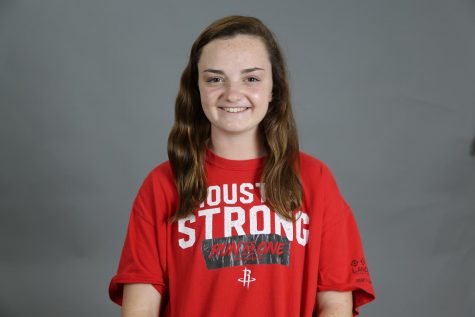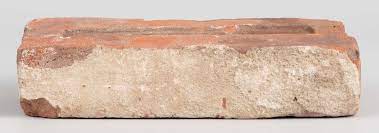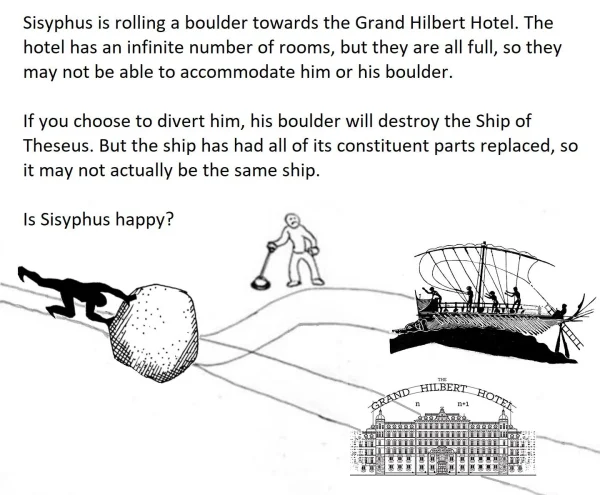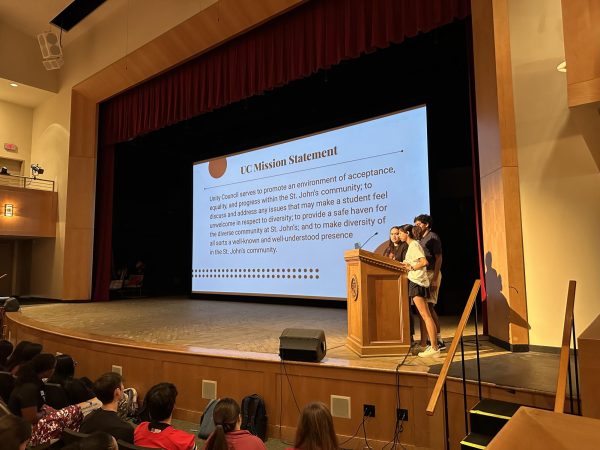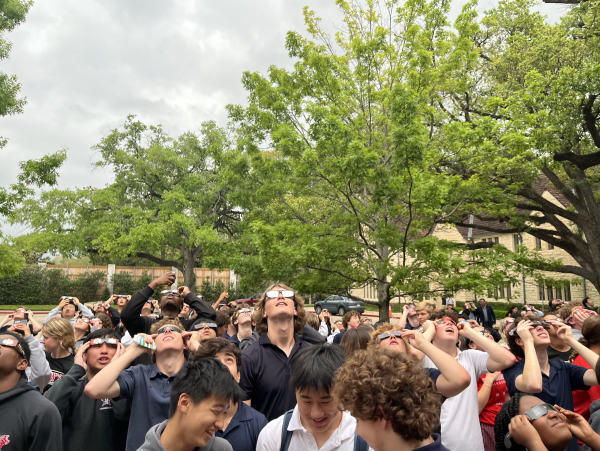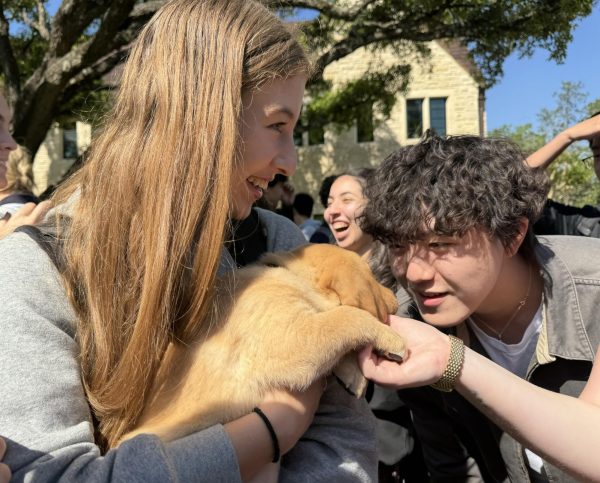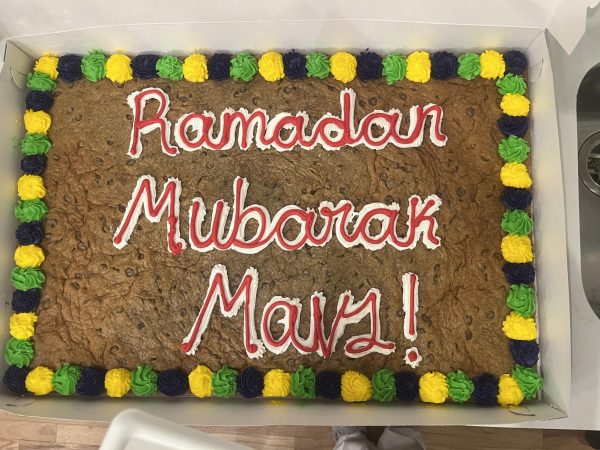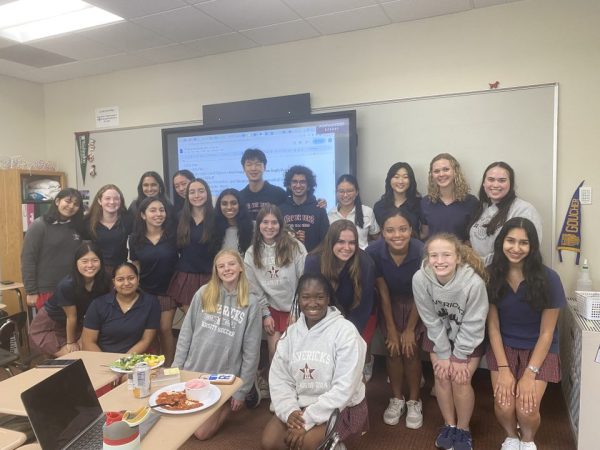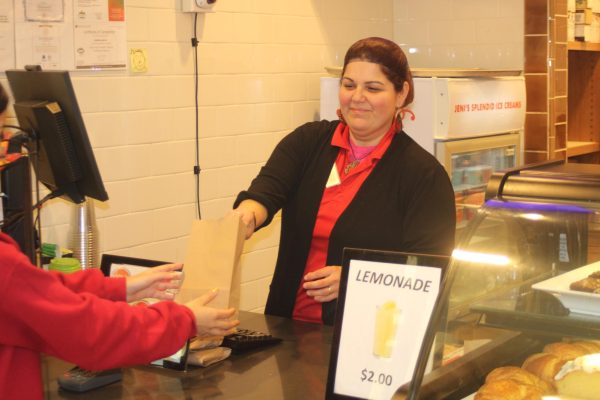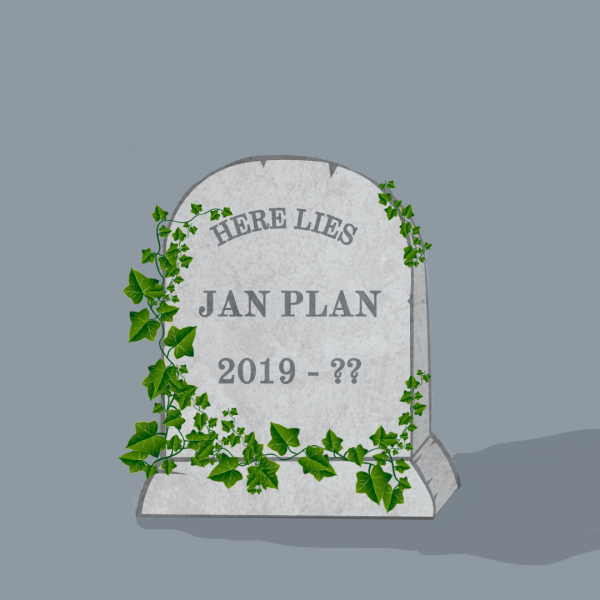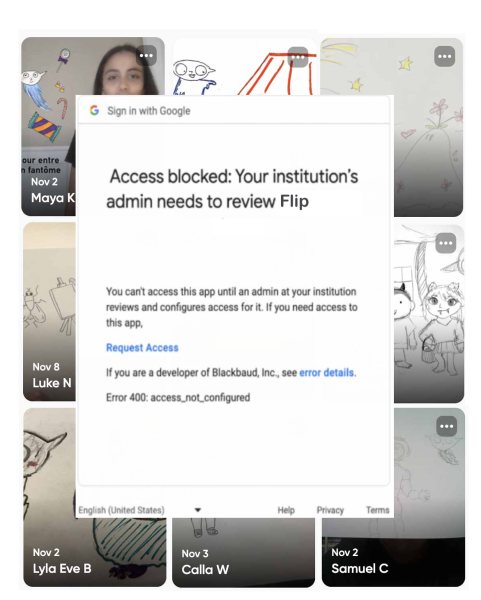Post-midterms political discussion encourages respectful conversation
Students gathered in the plaza to discuss the results of the 2018 midterms in a respectful, educational environment.
November 18, 2018
For more coverage of the midterm elections, be sure to check out The Review Online’s special political package here.
Following the 2016 presidential election, seniors Jackson Edwards and Jack Trent noticed that, instead of thoughtful bipartisan discussion, “Make America Great Again” hats and disappointed sulking were some of the only expressions of political beliefs. As a result, the two decided to create St. John’s Political Education Club, which allows students to respectfully discuss elections and politics.
This year, however, SPEC hoped to foster a stronger sense of community following the midterm elections. Both SPEC and Unity Council met with Head of Upper School Hollis Amley and Dean of Students Bailey Duncan to plan a respectful post-election conversation in the plaza.
“Unity Council and SPEC want to work together to ensure that our political divisions don’t divide us, but instead are a motive to be closer together as a community and enrich the school culture with a diverse set of ideologies,” Unity Council co-leader Matthew Yekell said.
To kick off discussion on Nov. 7, Unity Council co-leader Warda Mohamed left students with two questions to consider: “How are your thoughts and feelings about the outcome of the election going to impact your participation in political activism? How is SJS going to build community despite political division?”
As a result, students from either end of the political spectrum contributed to meaningful conversation to discuss their beliefs and reactions to the elections.
“I saw substantive conversation about the results of the election and politics instead of name calling and gloating,” Edwards said.
For some students who didn’t have as much knowledge on politics and the election, the conversations allowed them to learn more about current events.
“Talking to other people really helped me get my thoughts out and learn more things, not just about the election,” freshman Chloe Zhao said.
Many students also recognized the importance of discussing the political climate as many students will be eligible to vote in the 2020 election.
“I’m ready to vote,” junior Katie Shelburne said. “I’m so excited!”
Many students involved in the event noticed more interactions between diverging opinions compared to 2016.
“Just floating from conversation to conversation, the biggest difference was that people who won or lost were actually conversing with each other,” Trent said. “It was sort of just an ideal political conversation.”



